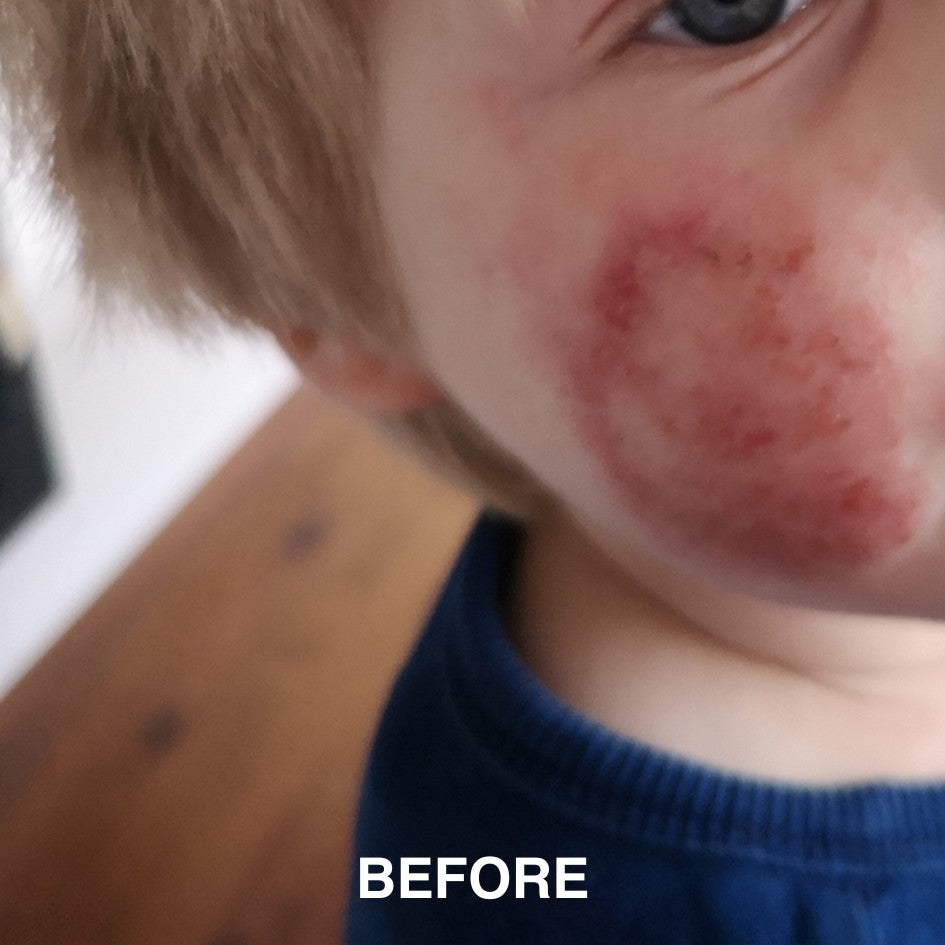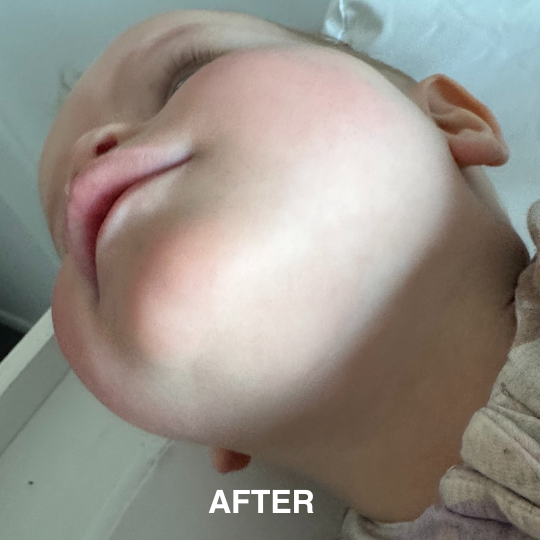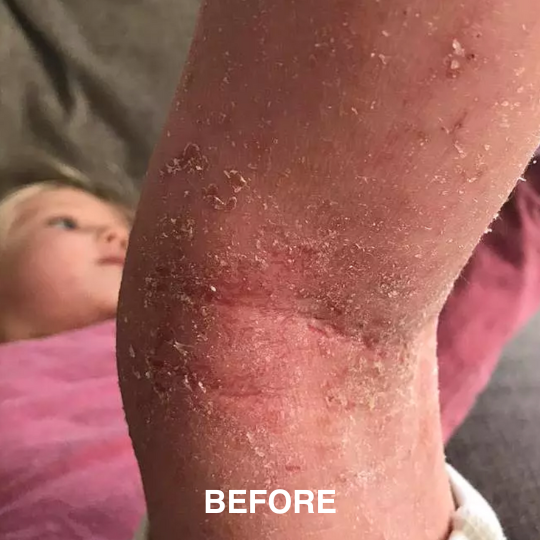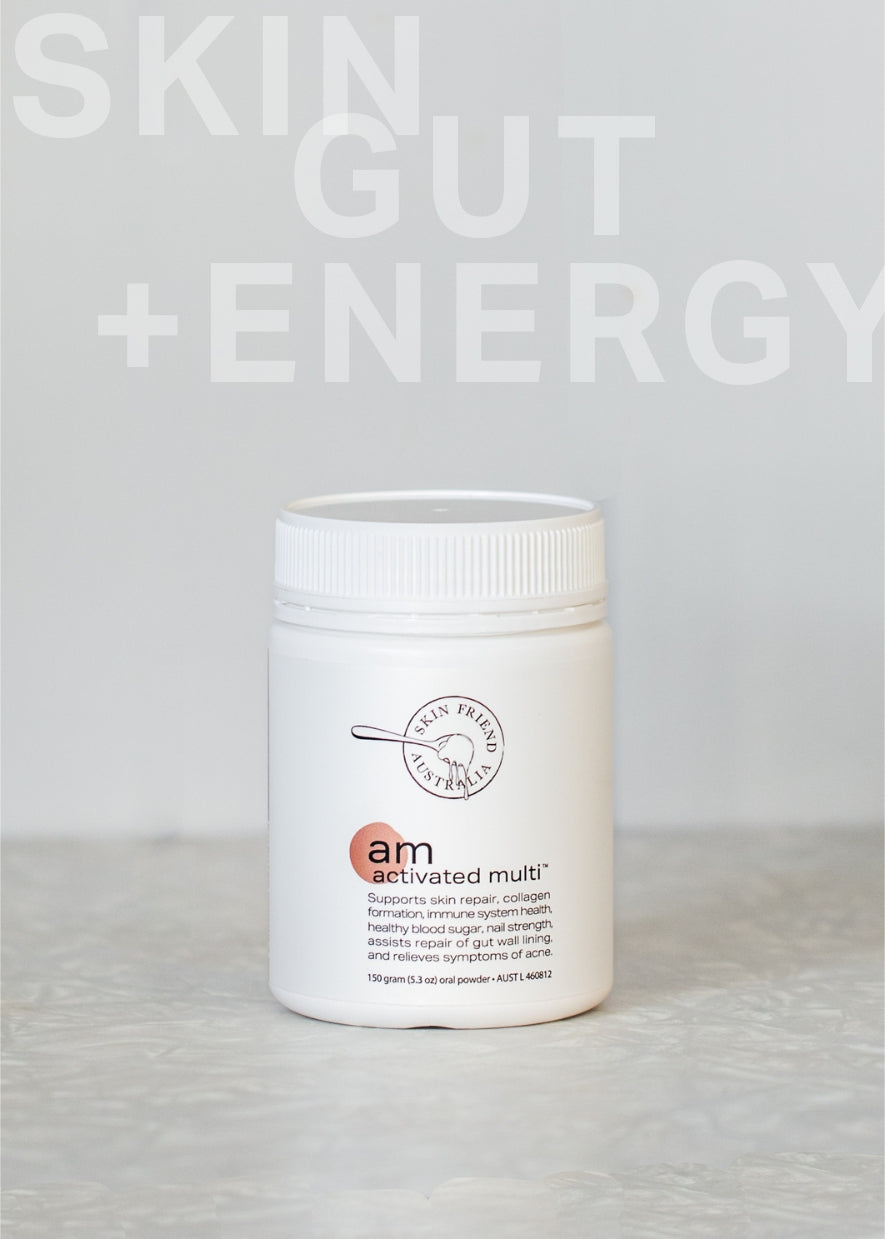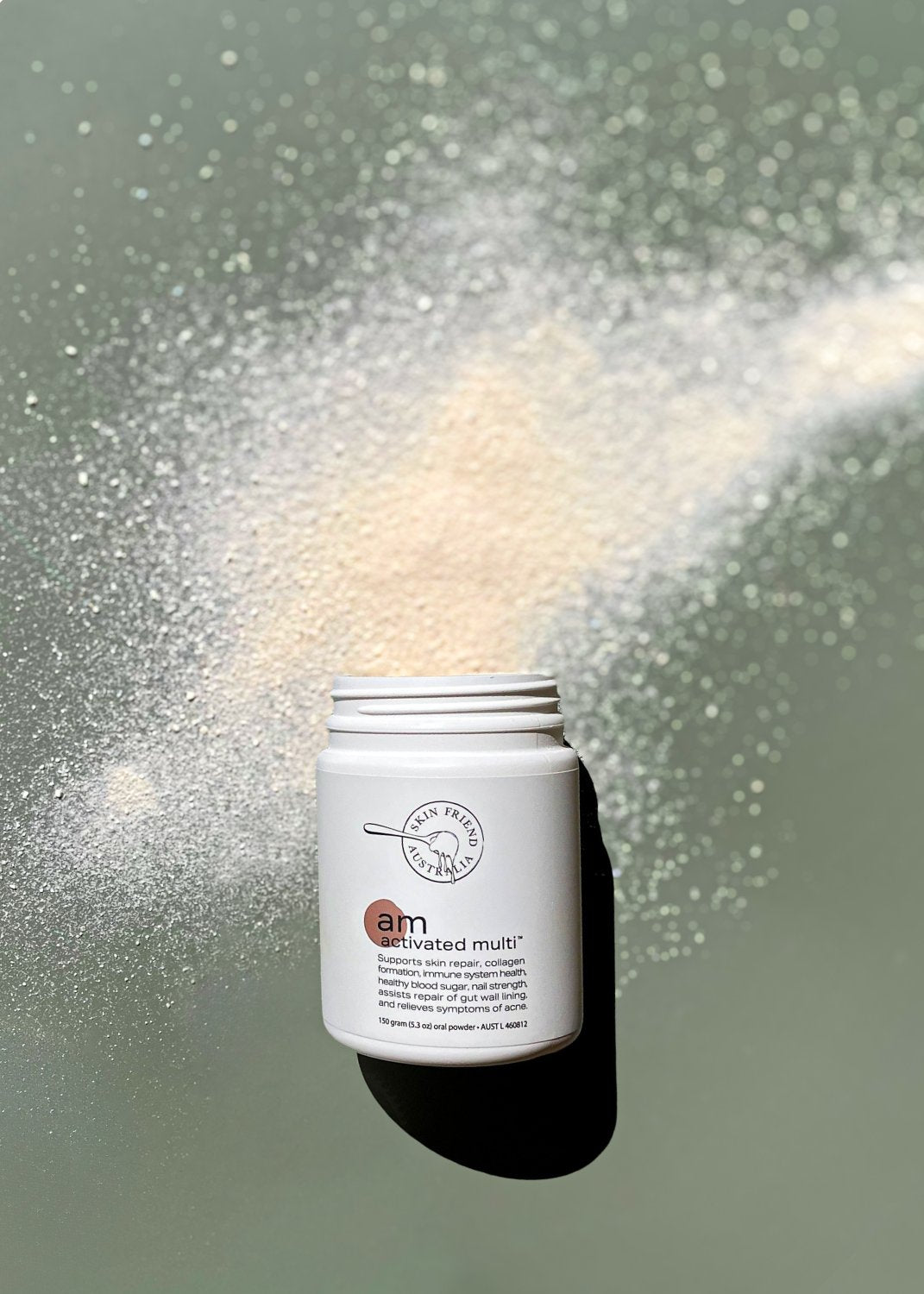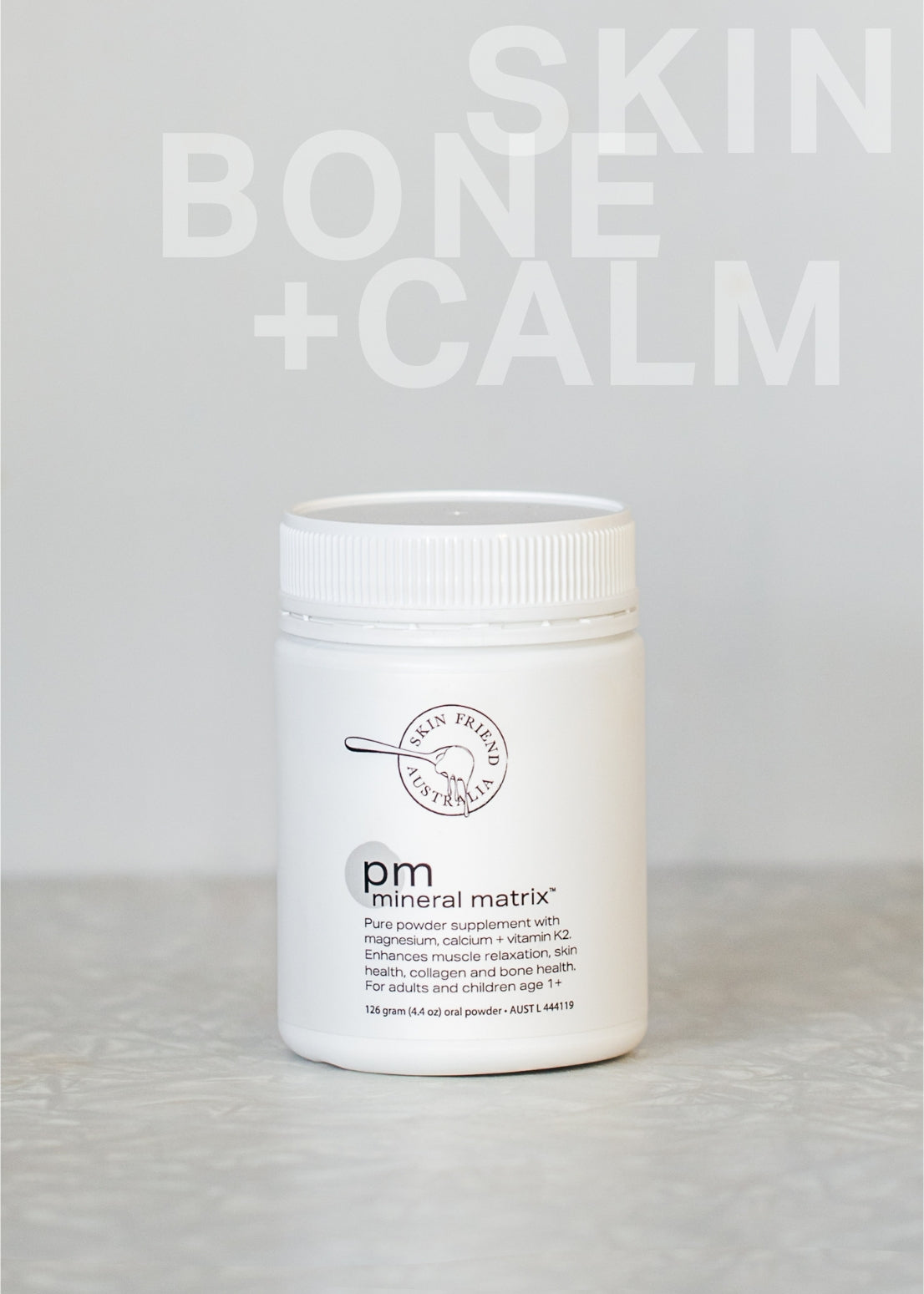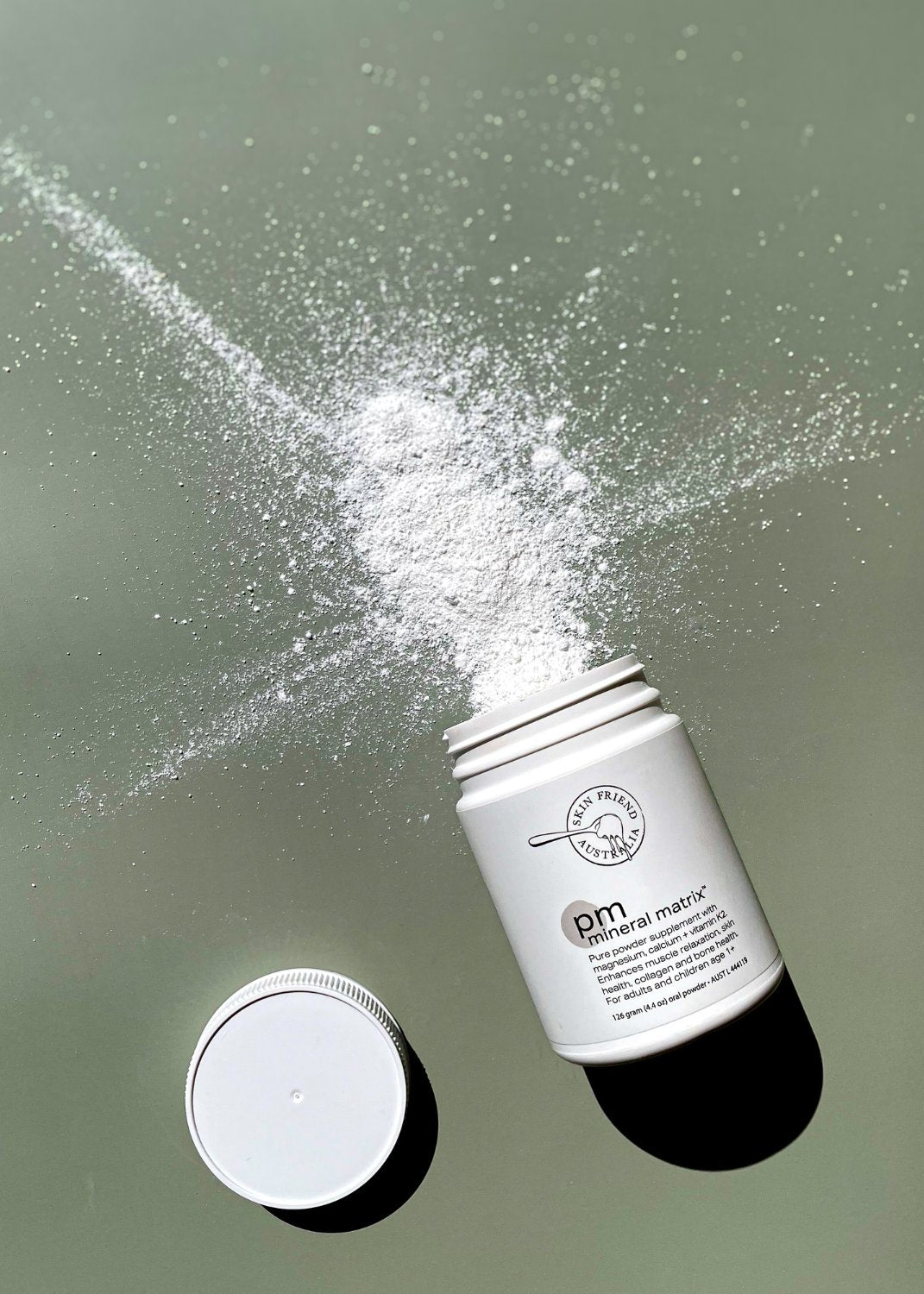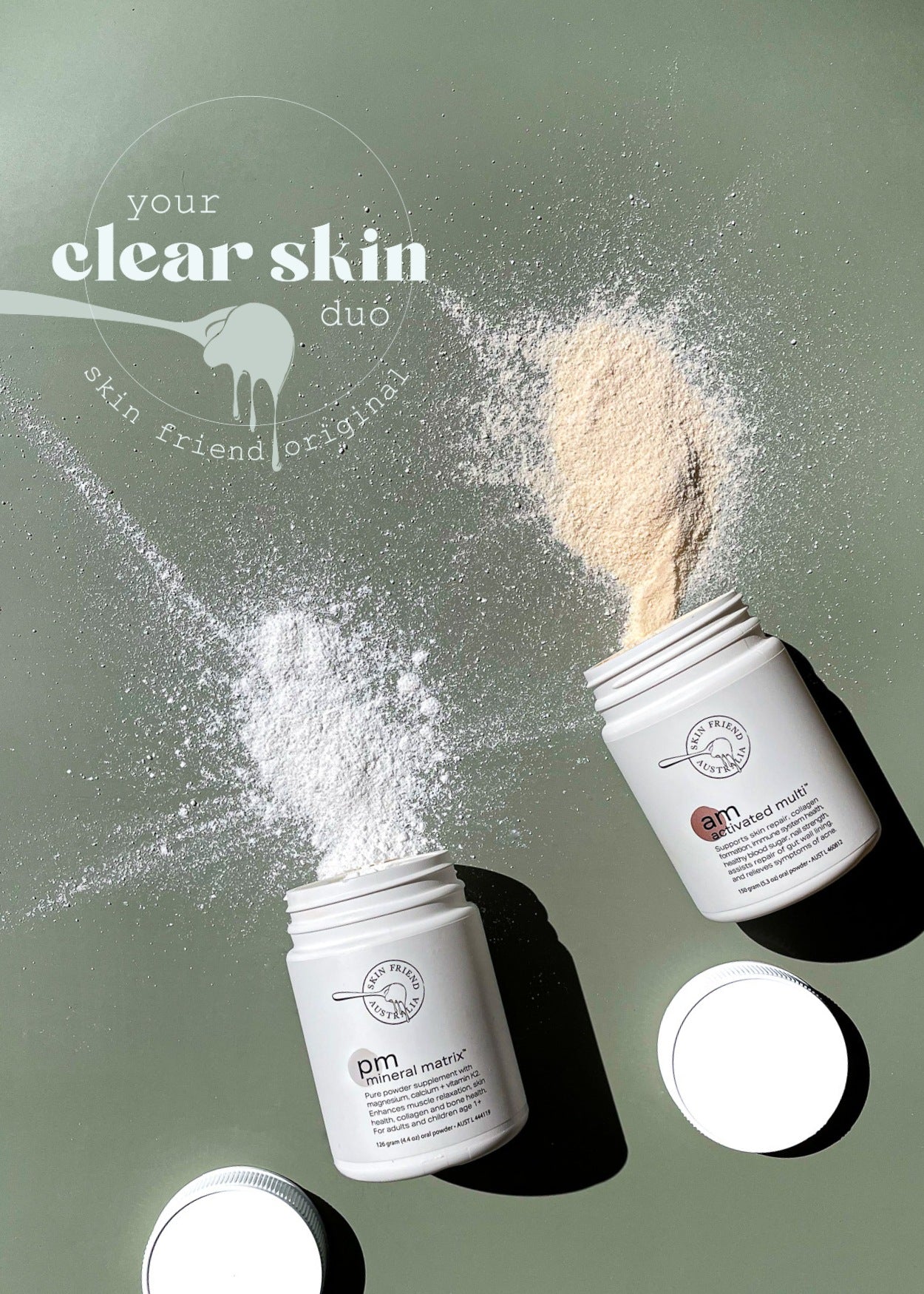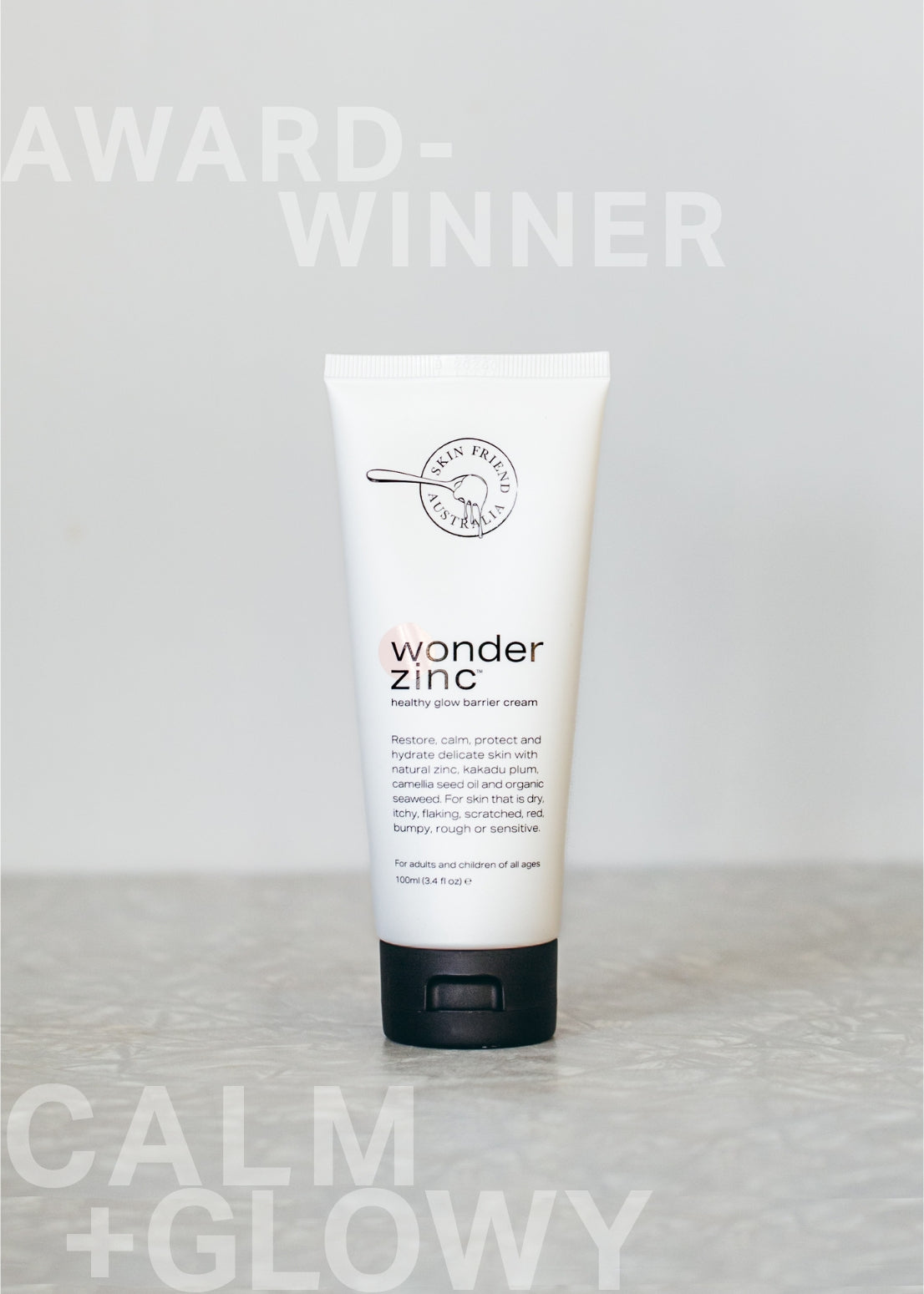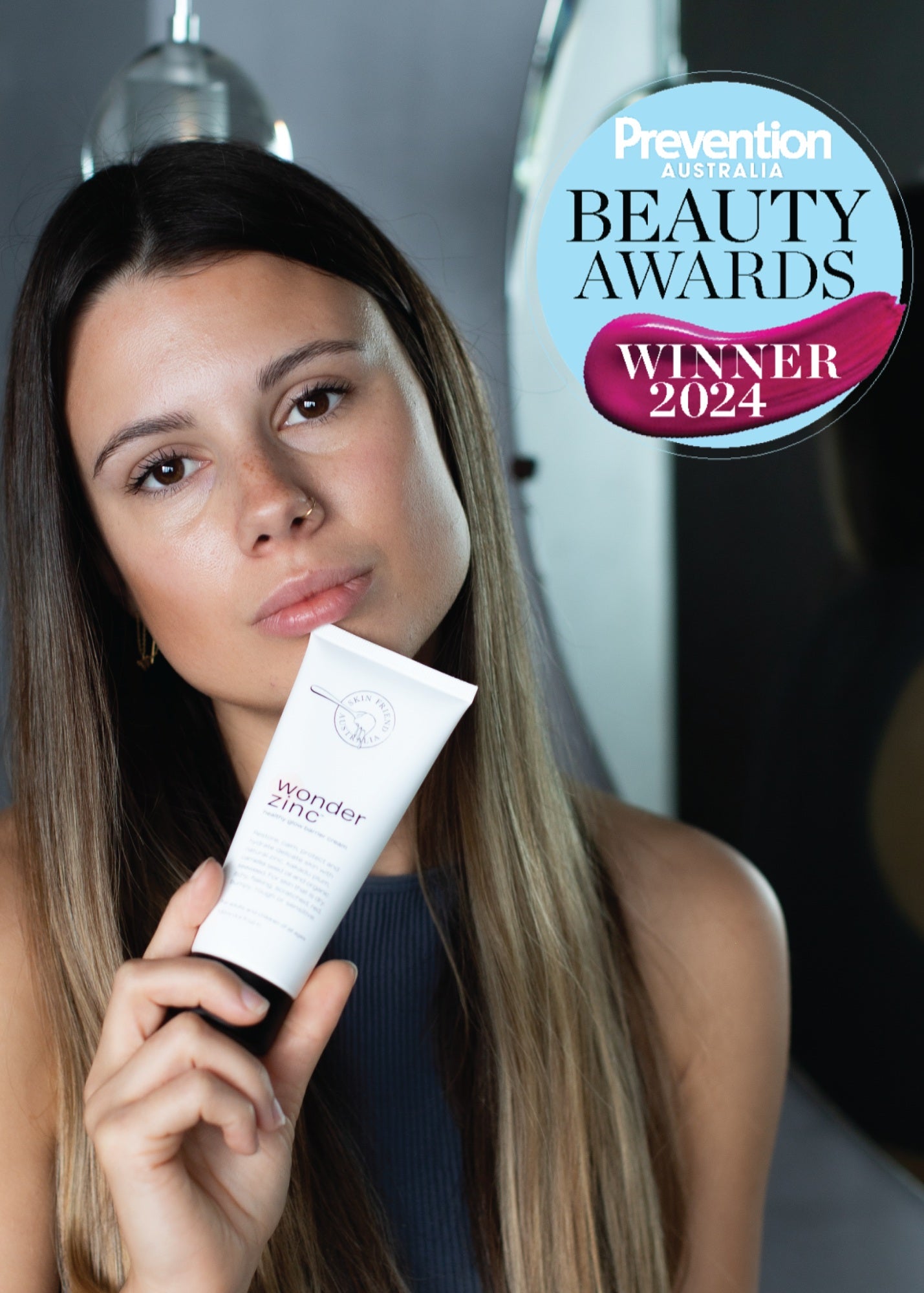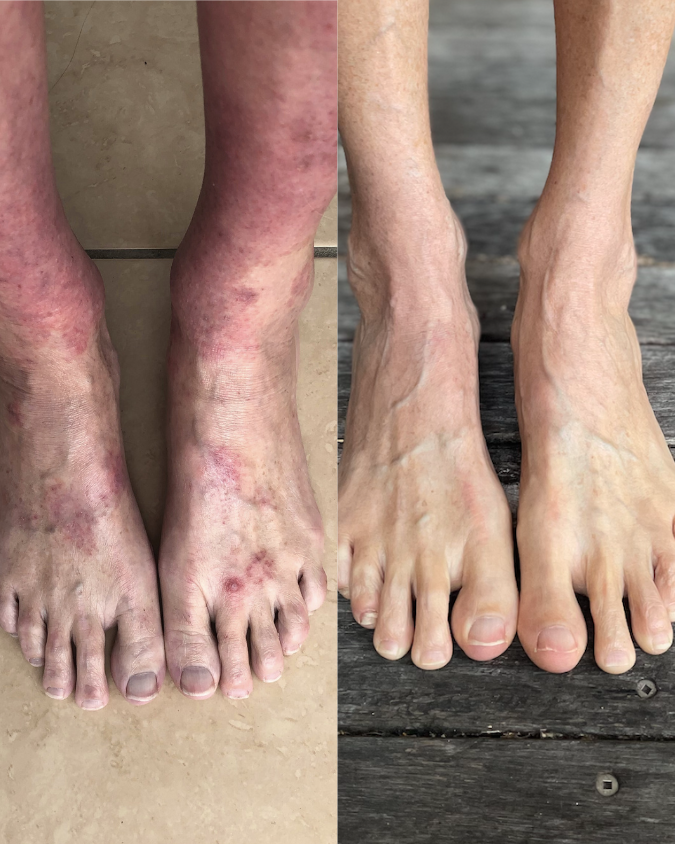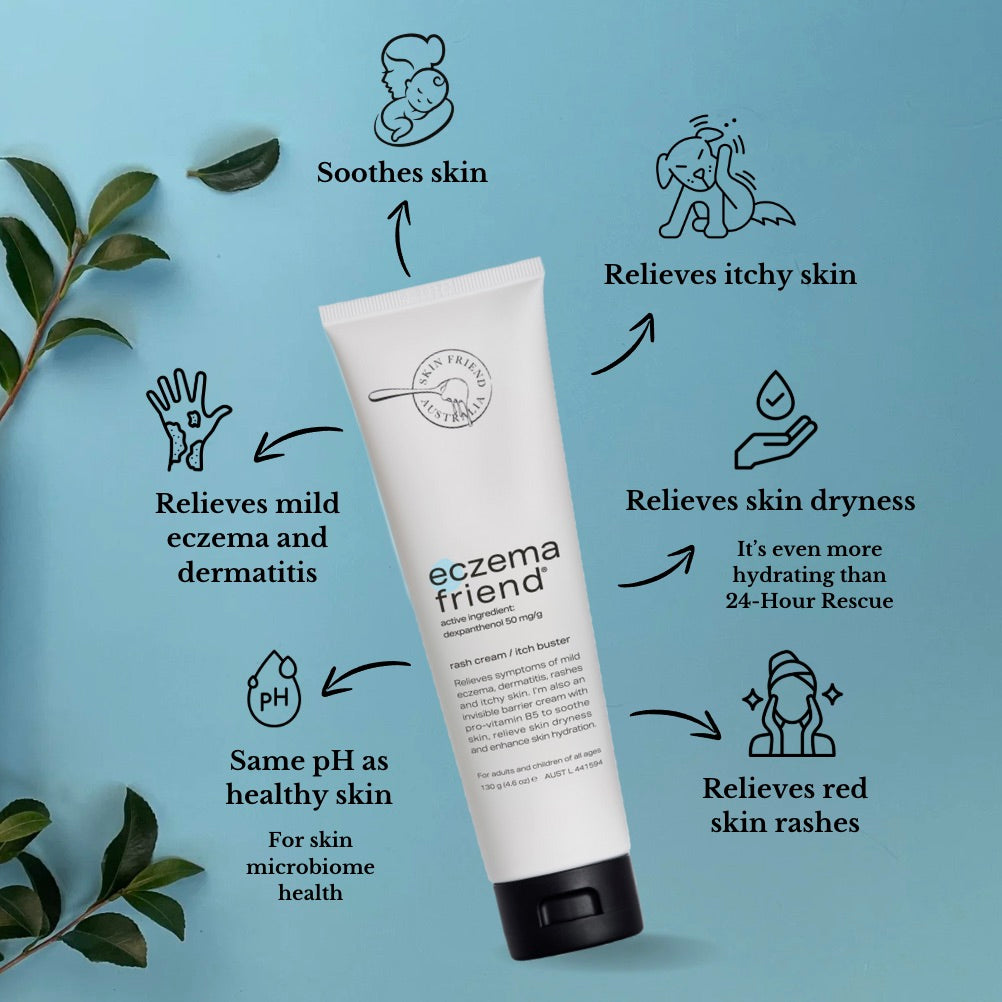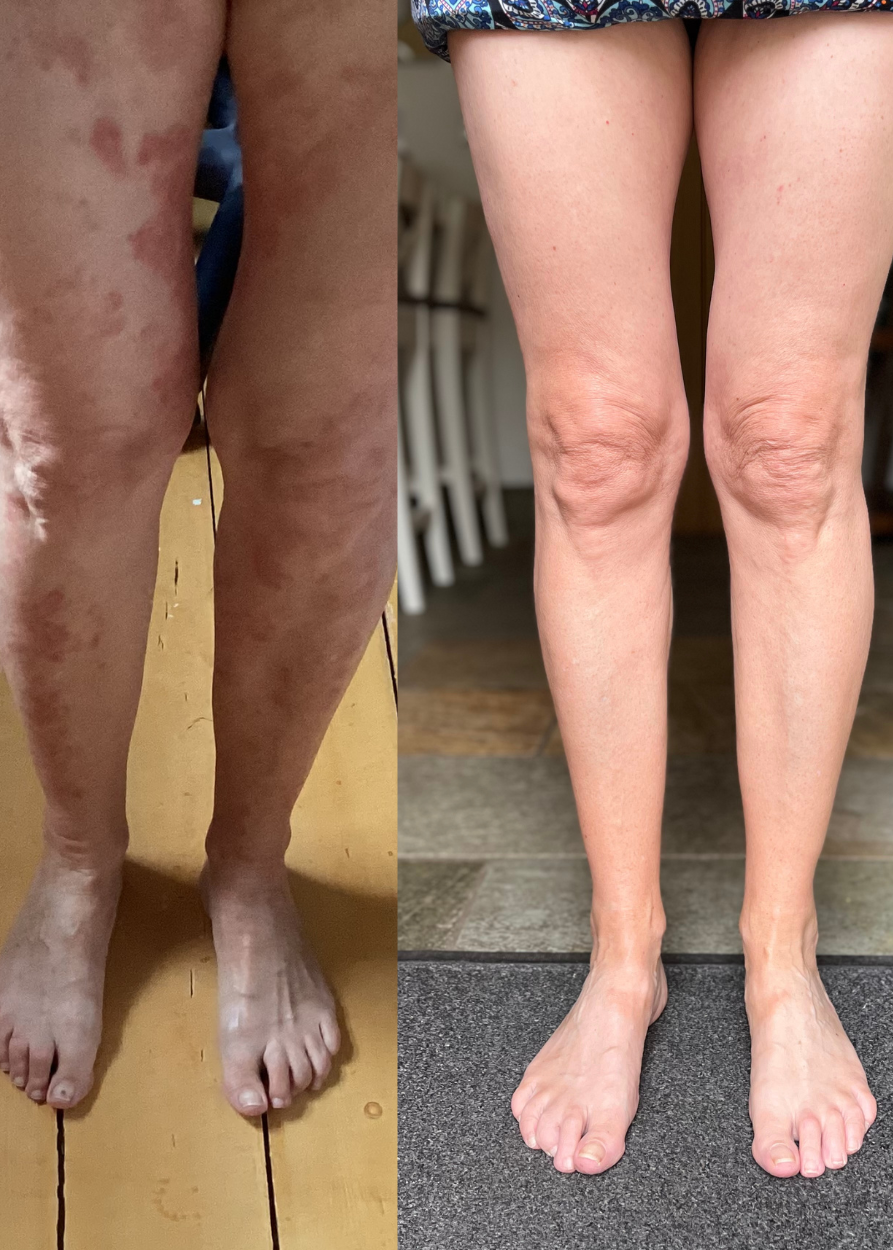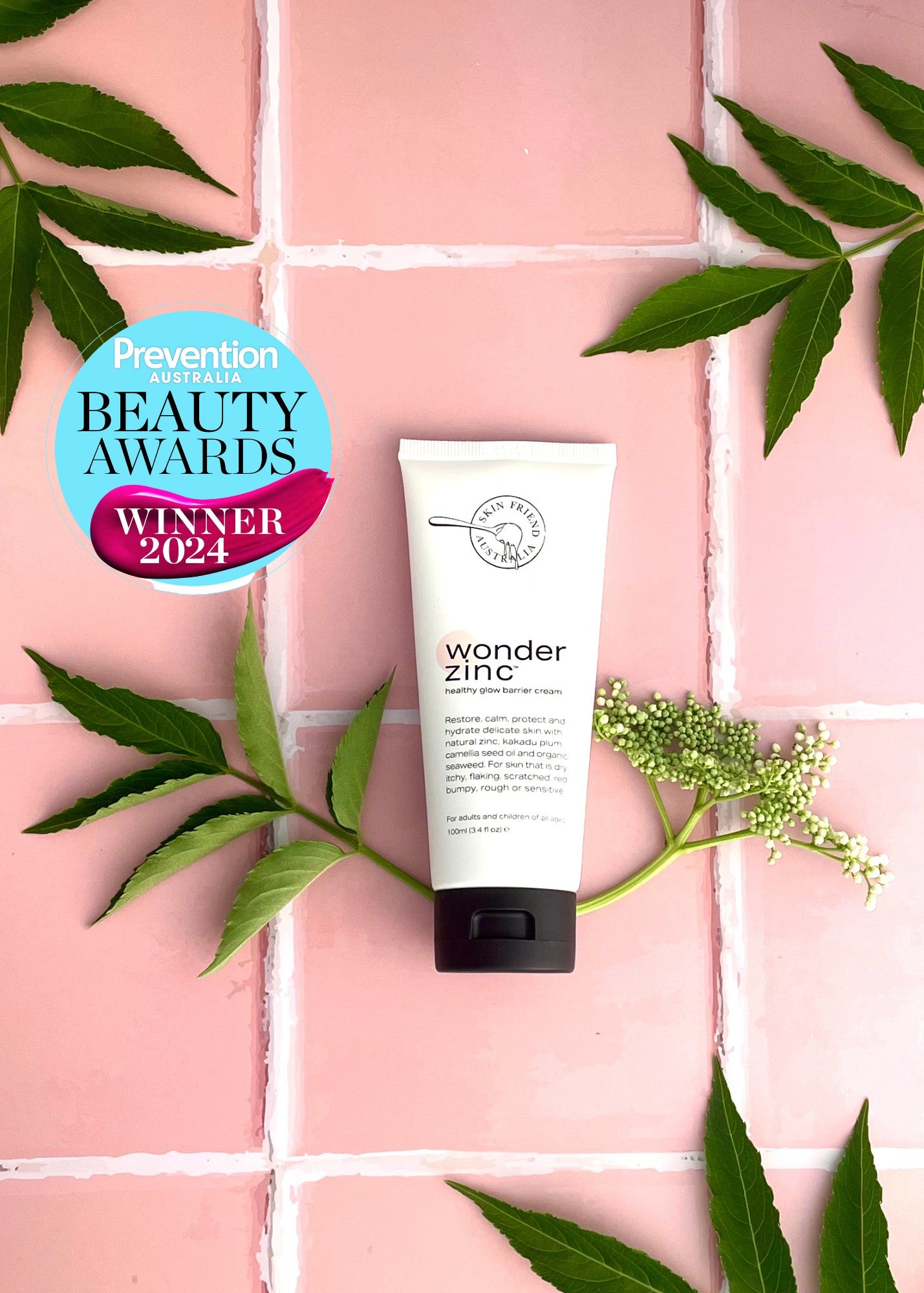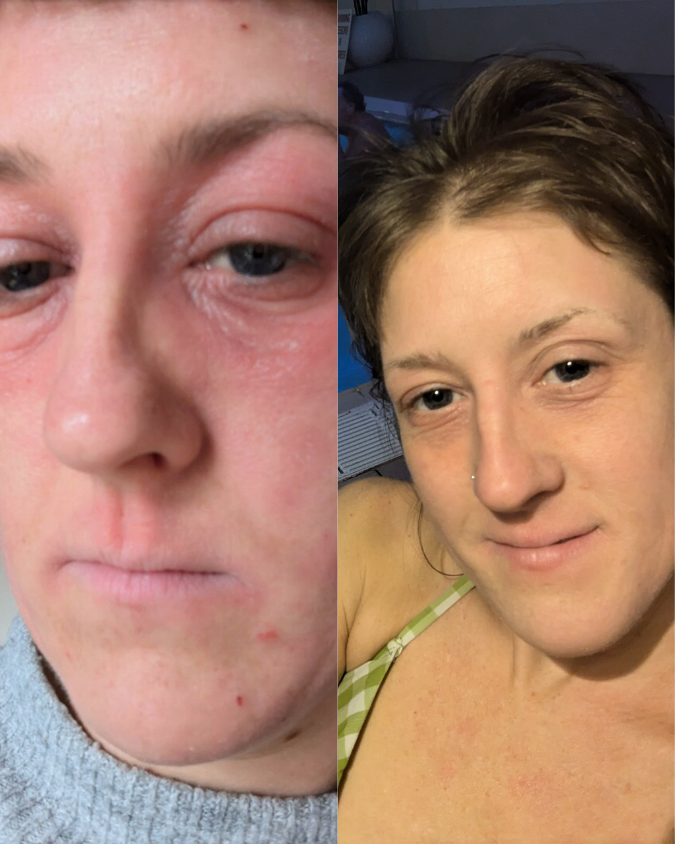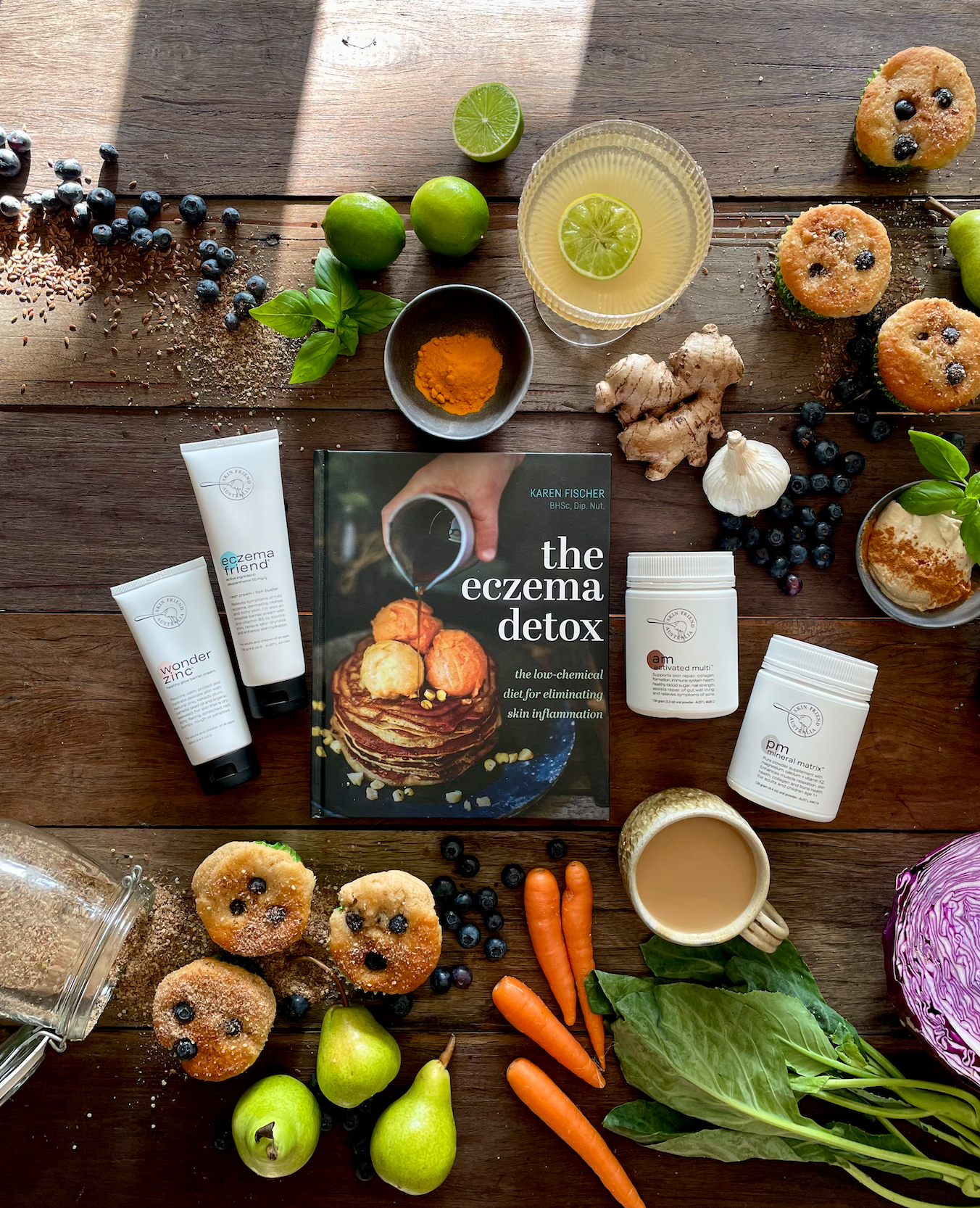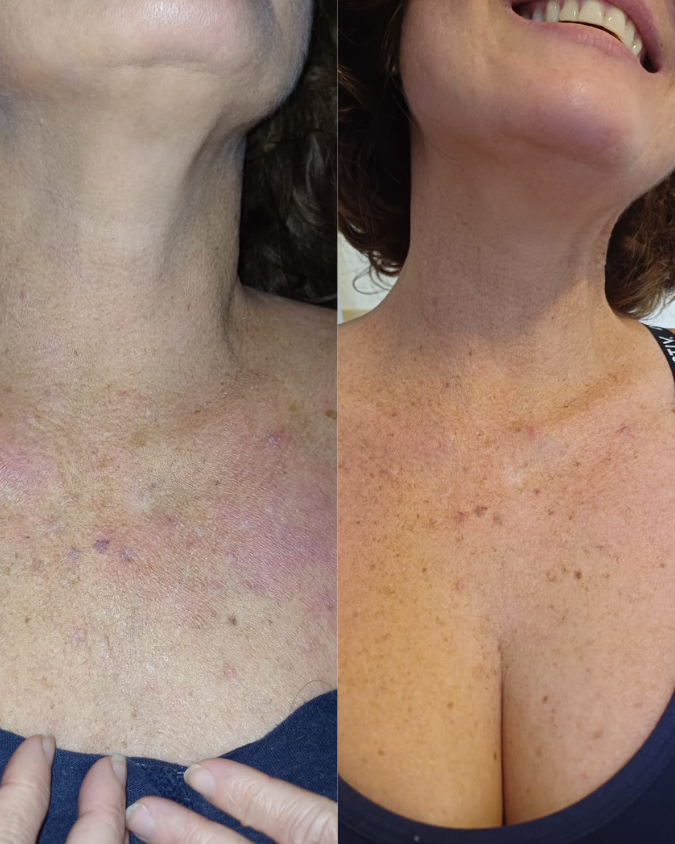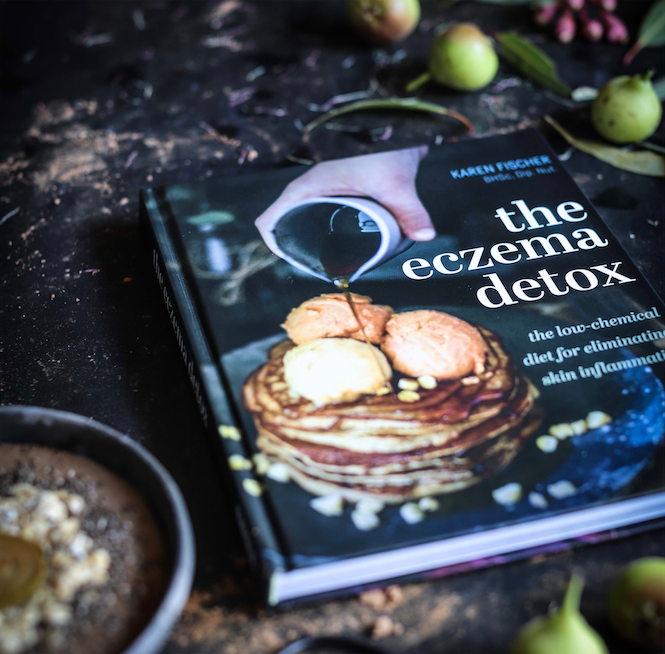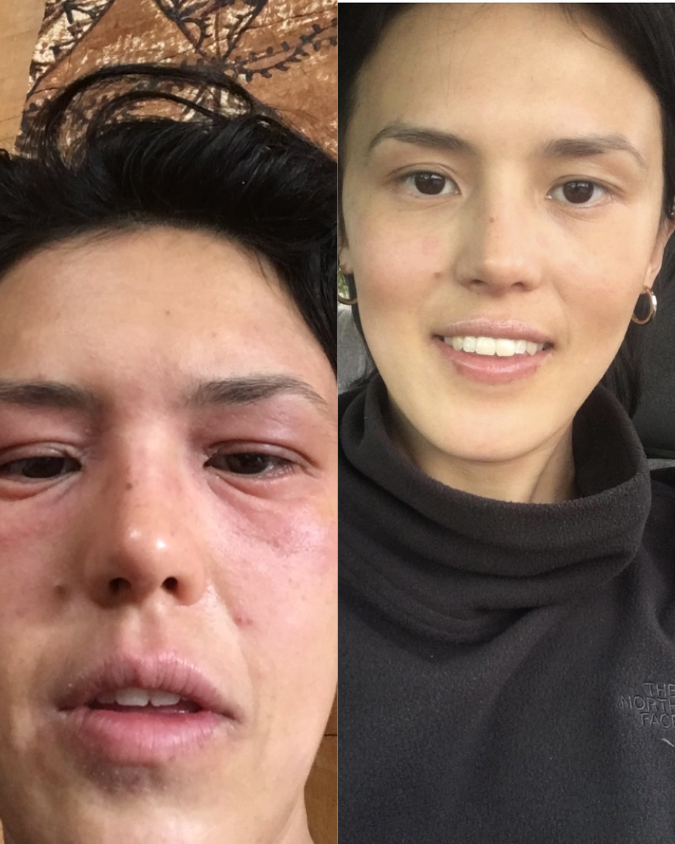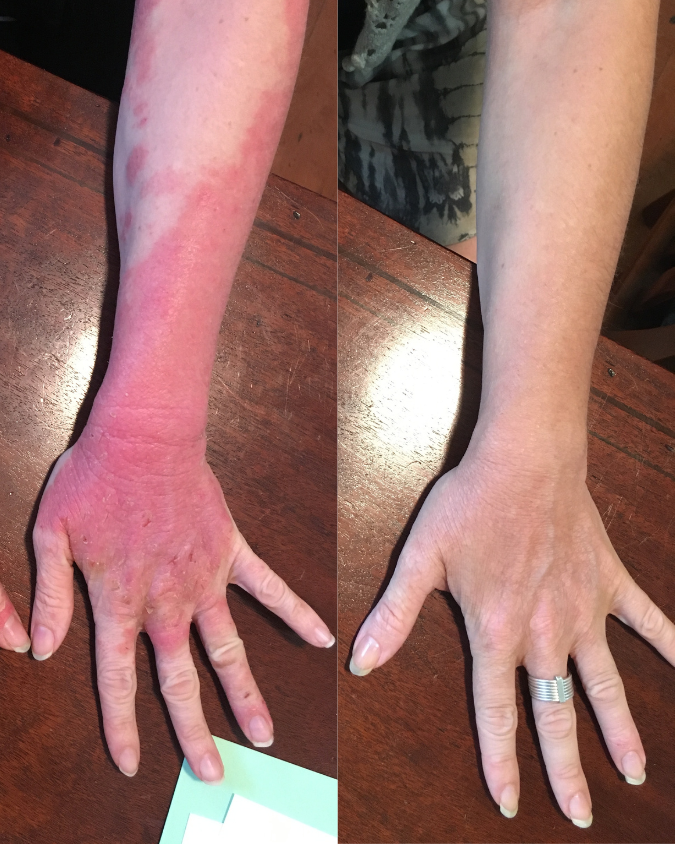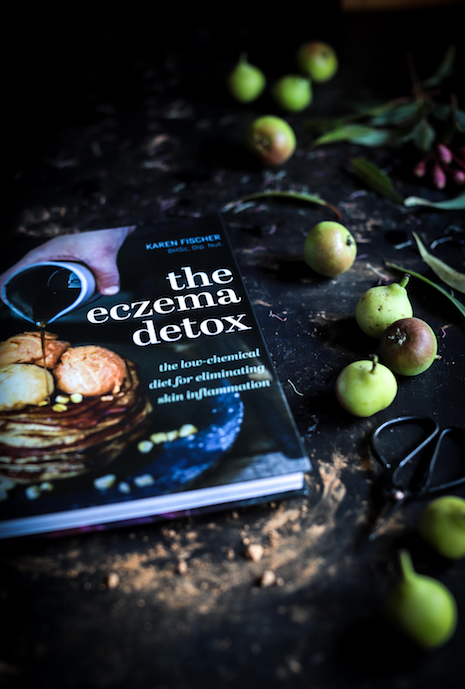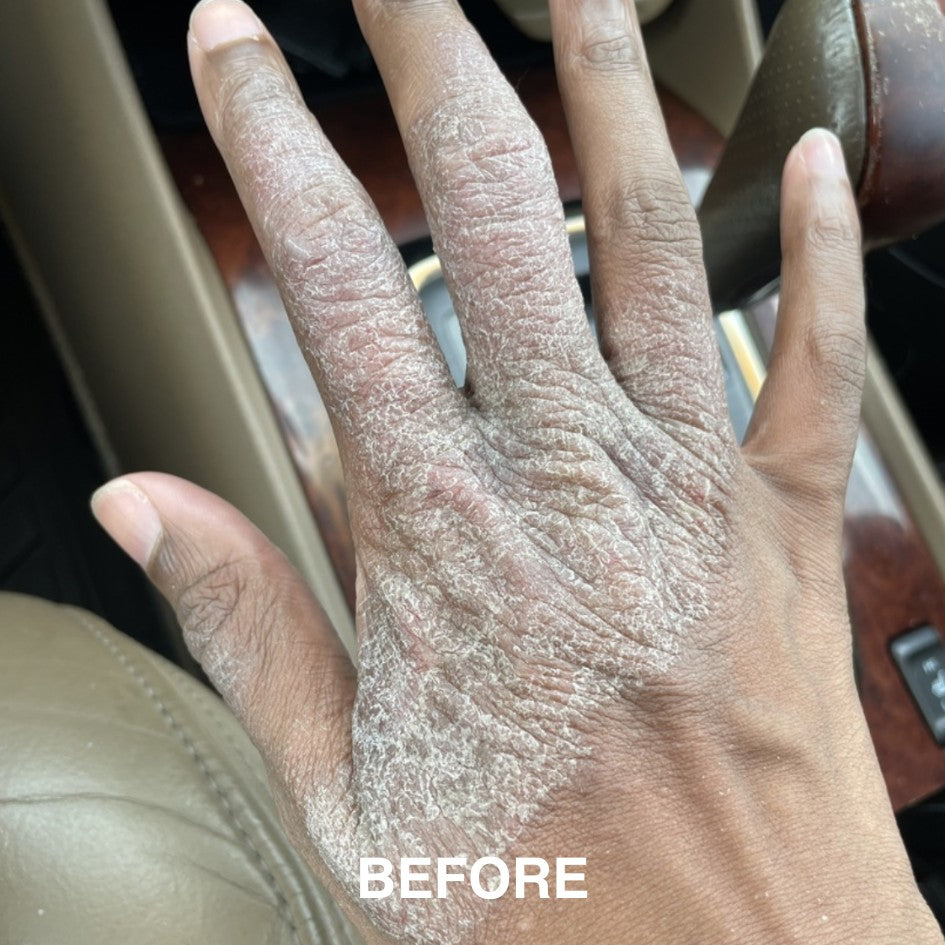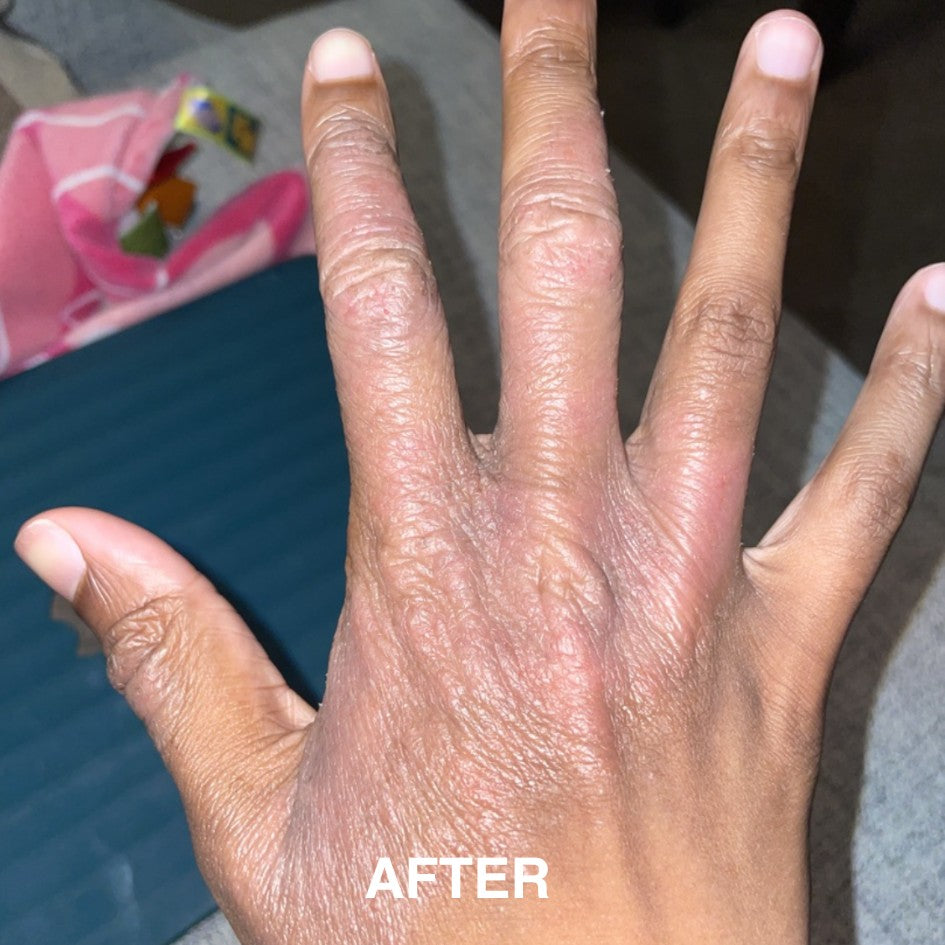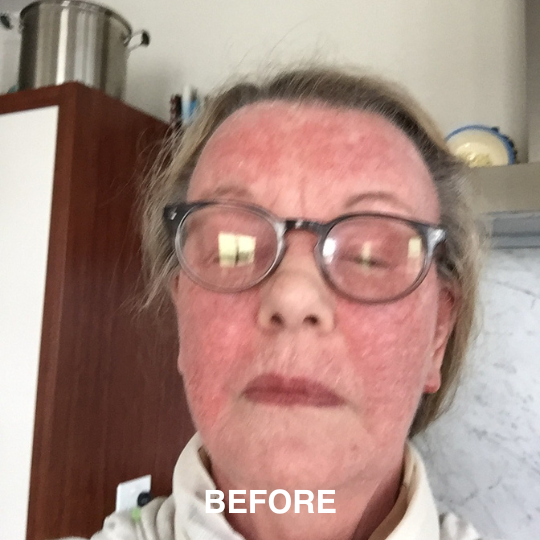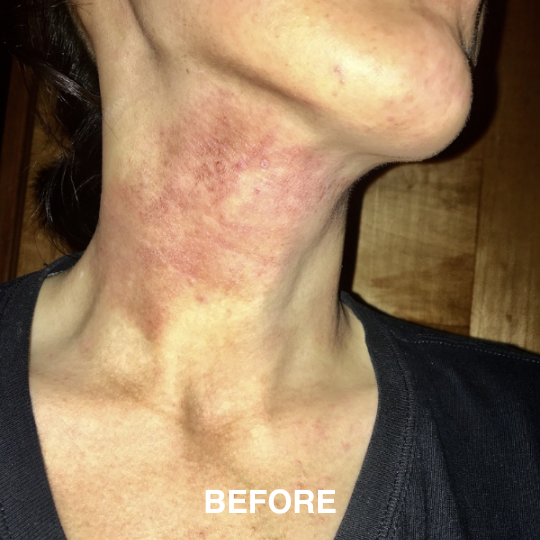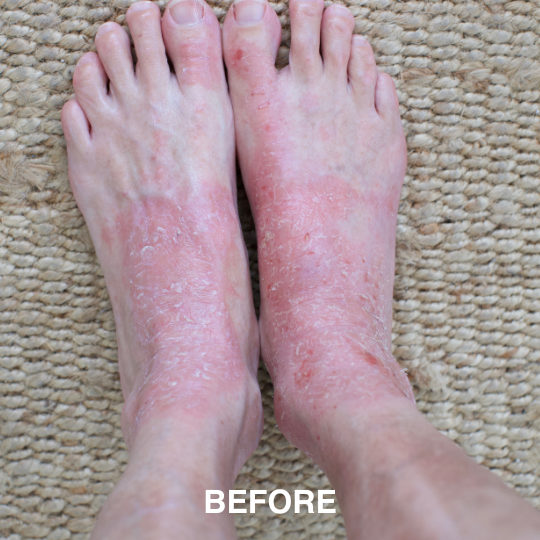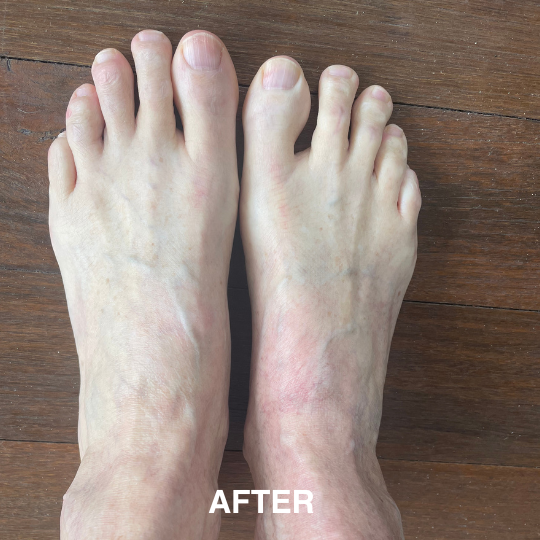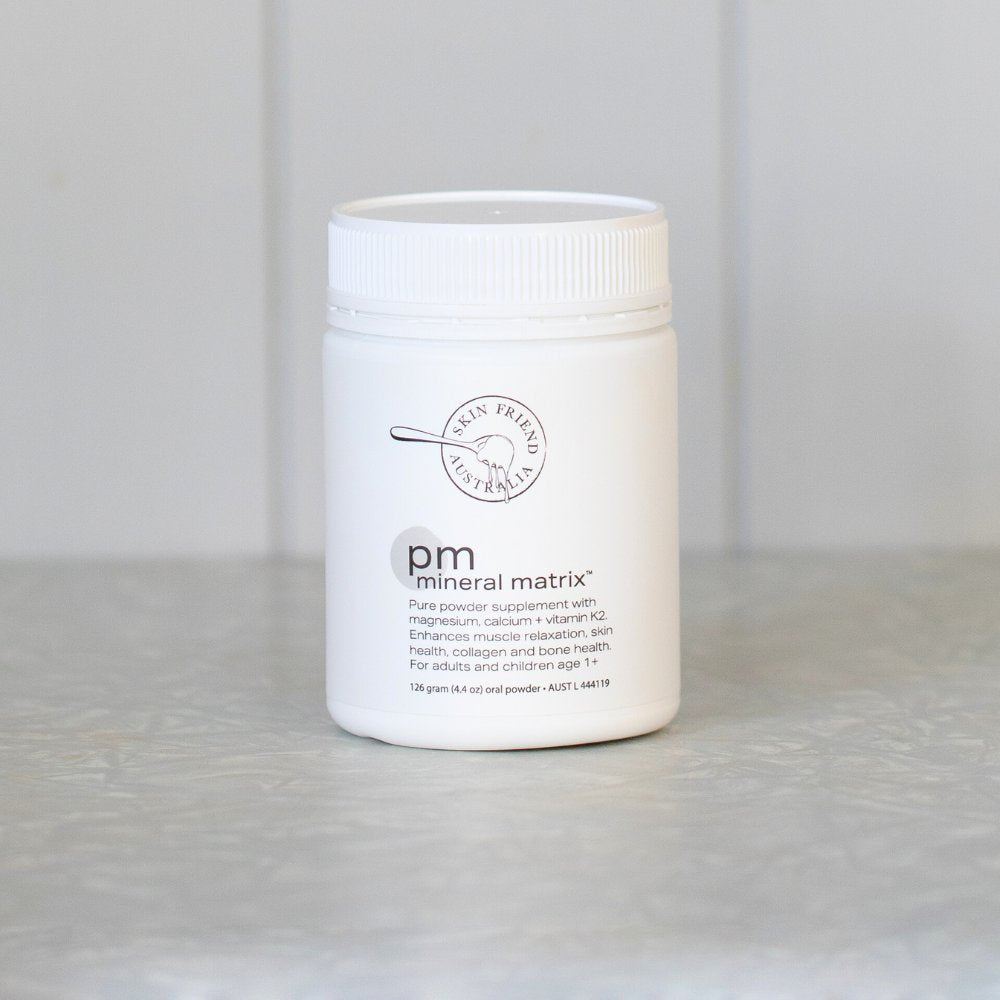
Blog post from The Eczema Diet Membership. Join our online supportive community today for recipes, resources, programs and support for clear skin.
If ever there was a vitamin that proved your skin is made, modified and healed by nutrients, it’s vitamin C (also known as ascorbic acid). In fact, scientists have demonstrated for more than a century that your skin literally falls apart if you don’t consume enough of this mighty vitamin. (Hodges, 1969)
So why is vitamin C good for eczema?
The problem: When you have eczema your skin barrier is broken which allows bacteria and irritants to enter.
The research:
-
Scientists found that Vitamin C supplementation improves the overall epidermal (skin) barrier function by modulating ceramide metabolic-related enzymes, thereby increasing ceramide production. (K. P. Kim, 2015; Zhu 2019)
FYI: Ceramides hold skin cells firmly together in your uppermost skin layer. This not only keeps the fluid IN your skin (so your skin feels hydrated) but also protects it from allergens and microbe invasion.
So vitamin C helps to improve the health of your skin barrier, along with calcium which is also important for healthy skin barrier function.
Let's back this up with scientific research...
-
Research shows that ceramides in your skin increase with supplementation of calcium and vitamin C. (Kim 2015)
-
The present studies show that Vitamin C supplementation increases skin ceramide production by three pathways in the body and these studies suggest that Vitamin C could be utilized to enhance epidermal barrier function in skin disorders like psoriasis and atopic dermatitis, which are characterized by a significant reduction in epidermal ceramide content. (Kim 2015)
Kim, K.P., Shin, K.O., Park, K., Yun, H.J., Mann, S., Lee, Y.M. and Cho, Y., 2015. Vitamin C stimulates epidermal ceramide production by regulating its metabolic enzymes. Biomolecules & Therapeutics, 23(6), p.525.
Zhu, Z., Yang, Z., Wang, C. and Liu, H., 2019. Assessment of the effectiveness of vitamin supplement in treating eczema: a systematic review and meta-analysis. Evidence-Based Complementary and Alternative Medicine, 2019.
More research on vitamin C (the basics)
- Vitamin C is vital for the formation of collagen in the skin and it is necessary for wound healing. Abdullah, M., 2022.
-
It's also a natural antihistamine, as vitamin C destroys the imidazole ring of the histamine molecule. Purnawan, 2014
-
Vitamin C deficiency can result in histamine toxicity and as a consequence allergic reactions may increase in severity. Jarisch, R., 2014
For this reason, if you have allergies and eczema it’s important to take extra vitamin C or check your diet is adequate.
How do I take vitamin C?
The body does not store or manufacture vitamin C so it must be consumed in your diet on a daily basis. The Australian Recommended Daily Intakes for Vitamin C can be found below:
|
Supplement dosages (milligrams per day)
|
| Infants |
0-6 months - 0.1 mg/day
7-12 months - 0.3 mg/day
|
| Children |
1-3 yrs - 35 mg/day
4-8 years 40 mg per day
|
| Teens |
9-13 yrs - 40 mg/day
14-18 yrs - 40 mg/day
|
| Adults |
19 - 50 -45 mg/day
70+ - 45 mg/day
|
| Pregnancy |
60 mg/day
|
|
Lactation |
85 mg/day
|
Some people with severe histamine intolerance (such as mast cell activation syndrome, which is what I had) may adversely react to regular vitamin C. However, you could try liposomal vitamin C as it is usually well-tolerated (but check the excipients as it often contains soy and additives and it can taste unpleasant or come with flavourings which can be problematic).
For the other 99% of us, ascorbic acid works perfectly well and it is far cheaper to buy (and tastes much nicer too!).
Ascorbic acid is the form of vitamin C that is backed by the most scientific research, which is why it's included in Skin Friend AM. This well-researched form of vitamin C was selected for Skin Friend AM to ensure the potency of our product.
(Eczema Diet) food sources of vitamin C
Eat papaya, white cabbage, red cabbage, white potatoes, Brussels sprouts and Pear to get your daily vitamin C fix. You can find plenty of vitamin c rich eczema diet recipes at our supportive online community for people with eczema, The Eczema Diet Membership.
Products for itchy skin
At Skin Friend, we recommend nutritionist Karen Fischer's low food chemical program (The Eczema Detox) along with additive-free supplements for skin health and wellbeing. Click on the images to view more details:






